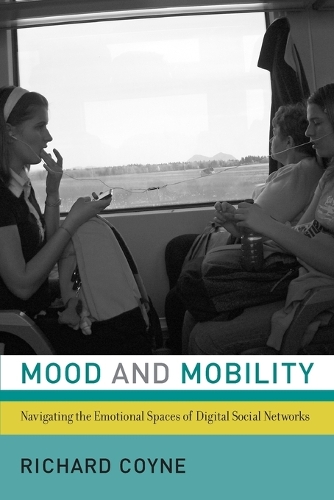
Mood and Mobility: Navigating the Emotional Spaces of Digital Social Networks
(Paperback)
Publishing Details
Mood and Mobility: Navigating the Emotional Spaces of Digital Social Networks
By (Author) Richard Coyne
MIT Press Ltd
MIT Press
21st May 2024
United States
Classifications
Professional and Scholarly
Non Fiction
Psychology: emotions
Information visualization
302.231
Physical Properties
Paperback
392
Width 152mm, Height 229mm
454g
Description
An argument that as we engage with social media on our digital devices we receive, modify, intensify, and transmit moods.
We are active with our mobile devices; we play games, watch films, listen to music, check social media, and tap screens and keyboards while we are on the move. In Mood and Mobility, Richard Coyne argues that not only do we communicate, process information, and entertain ourselves through devices and social media; we also receive, modify, intensify, and transmit moods. Designers, practitioners, educators, researchers, and users should pay more attention to the moods created around our smartphones, tablets, and laptops.
Drawing on research from a range of disciplines, including experimental psychology, phenomenology, cultural theory, and architecture, Coyne shows that users of social media are not simply passive receivers of moods; they are complicit in making moods. Devoting each chapter to a particular moodfrom curiosity and pleasure to anxiety and melancholyCoyne shows that devices and technologies do affect people's moods, although not always directly. He shows that mood effects are transitional; different moods suit different occasions, and derive character from emotional shifts. Furthermore, moods are active; we enlist all the resources of human sociability to create moods. And finally, the discourse about mood is deeply reflexive; in a kind of meta-moodiness, we talk about our moods and have feelings about them. Mood, in Coyne's distinctive telling, provides a new way to look at the ever-changing world of ubiquitous digital technologies.
Author Bio
Richard Coyne is Professor and Chair of Architectural Computing at the University of Edinburgh. He is the author of Mood and Mobility, The Tuning of Place, Cornucopia Limited, and Technoromanticism (all MIT Press).
